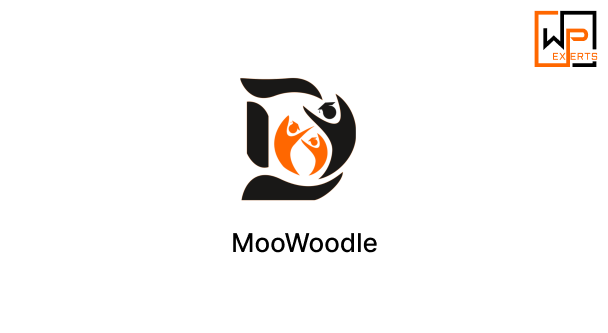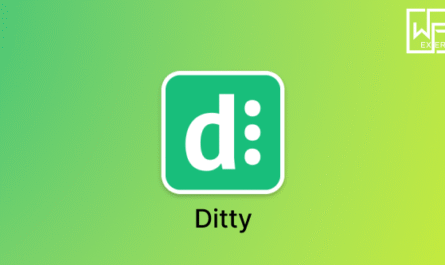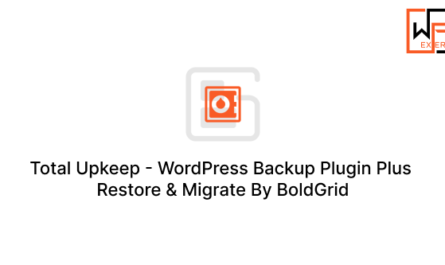MooWoodle – WordPress & Moodle LMS Integration Bridge
In the evolving landscape of eLearning, combining the power of WordPress with a full-featured Learning Management System like Moodle creates endless possibilities. MooWoodle serves as a bridge between these two powerful platforms, allowing users to enjoy the best of both worlds — the flexibility of WordPress and the robust educational features of Moodle.
[modal_image thumbnail=”/wp-content/uploads/2025/05/MooWoodle-inner.png” large=”/wp-content/uploads/2025/05/MooWoodle-inner-slider.png”]
What Is MooWoodle?
MooWoodle is a free WordPress plugin designed to integrate WordPress with Moodle, a popular open-source LMS (Learning Management System). The plugin allows WordPress users to display Moodle courses, manage enrollments, and sell those courses using WooCommerce. MooWoodle simplifies the process of linking Moodle’s backend educational engine with WordPress’s customizable, user-friendly interface and e-commerce features.
Key Features of MooWoodle
- Course Listing in WordPress
MooWoodle enables the listing of Moodle courses within a WordPress site. This allows course creators to display course information in a visually appealing way using WordPress themes and page builders. - WooCommerce Integration
You can sell Moodle courses as WooCommerce products. This makes it easy to manage payments, coupons, discounts, and product variations using the WooCommerce ecosystem. - Automatic Enrollment
When a user purchases a course through WooCommerce, MooWoodle automatically creates an account in Moodle (if one does not already exist) and enrolls the user in the relevant course. - Single Sign-On (SSO)
With SSO features, users can access Moodle courses directly after logging in via WordPress, streamlining the learning experience and eliminating the need for multiple logins. - Moodle Course Data Synchronization
MooWoodle synchronizes important course data such as name, summary, and price from Moodle to WordPress, ensuring consistency and saving time. - Custom Course Page Designs
Since the course listing is on WordPress, you can use Elementor, WPBakery, or Gutenberg blocks to design attractive layouts for course landing pages. - Multilingual & Multisite Support
MooWoodle supports WordPress multilingual sites and is compatible with multisite installations, making it ideal for institutions with diverse audiences.
Benefits of Using MooWoodle
1. Best of Both Worlds
WordPress is great for content creation, marketing, and SEO, while Moodle excels in structured eLearning. MooWoodle lets you combine them to offer powerful learning experiences.
2. E-Commerce Flexibility
Through WooCommerce, you can sell courses via various payment gateways like PayPal, Stripe, or Razorpay, add discounts, and manage subscriptions or memberships.
3. Cost-Effective
MooWoodle is open-source and free to use, which makes it a budget-friendly solution for schools, coaching centers, and corporate training providers.
4. User Management Automation
The plugin handles user creation and course enrollment automatically, reducing administrative overhead and improving the learner’s onboarding experience.
5. Scalable Solution
Whether you’re a small coaching institute or a large university, MooWoodle scales to fit your needs. You can list dozens or hundreds of courses and manage thousands of users.
How MooWoodle Works: The Workflow
Here’s a simplified workflow of how MooWoodle integrates Moodle and WordPress:
- Install Moodle and WordPress on your respective servers or subdomains.
- Install MooWoodle plugin on your WordPress site.
- Connect WordPress to Moodle using the MooWoodle settings (you’ll need your Moodle site URL and a Moodle Web Service Token).
- Sync courses from Moodle into WordPress using the MooWoodle dashboard.
- Create WooCommerce products linked to Moodle courses.
- Users purchase courses through WordPress/WooCommerce.
- MooWoodle automatically creates users in Moodle and enrolls them in the course.
- Users log in via WordPress and access Moodle courses seamlessly.
System Requirements
- WordPress version 5.0 or above
- WooCommerce plugin installed and configured
- Moodle version 3.0 or above
- PHP 7.4 or later
- cURL must be enabled on the server (used for API calls)
Use Cases
1. Online Course Portals
Instructors can create and manage courses in Moodle while presenting and selling them through a professional WordPress front-end.
2. Corporate Training
Companies can use MooWoodle to manage employee training modules with better branding and access control.
3. Schools and Universities
Educational institutions can provide online access to academic materials, certifications, and fee-based training through a unified platform.
4. Coaching Institutes
Independent tutors or coaching centers can easily list, promote, and monetize their courses online.
Setting Up MooWoodle – Step by Step
- Install MooWoodle Plugin
Go to Plugins → Add New in your WordPress dashboard. Search for “MooWoodle,” install and activate it. - Configure Moodle Settings
- In Moodle, go to Site Administration > Server > Web Services.
- Enable web services and create a Web Service Token.
- Assign necessary capabilities to the web service user (like user creation, course enrollment, etc.).
- Connect Moodle with WordPress
- In WordPress, go to MooWoodle Settings.
- Enter your Moodle site URL and the Web Service Token.
- Save the settings and test the connection.
- Sync Courses
- Go to MooWoodle > Courses and click on “Sync Courses.”
- Select which courses you want to import and create WooCommerce products for them.
- Customize Course Pages
- Use WordPress themes, page builders, and widgets to design your course listing and individual course pages.
- Start Selling
- Once the WooCommerce products are linked, users can browse and buy courses like any other product.
Add-Ons and Extensions
While MooWoodle offers essential functionality, you can enhance your LMS platform with additional plugins:
- Membership Plugins (e.g., MemberPress, Restrict Content Pro)
- Gamification Tools (e.g., GamiPress, BadgeOS)
- Analytics and Reporting
- Email Marketing Tools (e.g., Mailchimp for WooCommerce)
- LMS Themes optimized for course layouts
Limitations
- Requires technical setup on both Moodle and WordPress ends.
- Some advanced features may require custom development or premium add-ons.
- Single Sign-On (SSO) might not be fully seamless without additional configuration.
- Course completion tracking and progress display are handled within Moodle, not WordPress.
Alternatives to MooWoodle
If MooWoodle doesn’t meet all your needs, here are a few alternatives:
- Edwiser Bridge – Offers more premium features like two-way sync, SSO, and enrollment reports.
- LearnDash – A full LMS plugin for WordPress (does not use Moodle but is easy to manage within WordPress).
- LMS by Masteriyo – A WordPress-native LMS that’s beginner-friendly.
Final Thoughts
MooWoodle is a powerful integration plugin that helps educational institutions and online instructors bridge the gap between WordPress and Moodle. By leveraging WordPress’s content management capabilities and WooCommerce’s e-commerce power, alongside Moodle’s robust LMS features, MooWoodle provides a cost-effective, scalable, and flexible solution for eLearning.
Whether you’re launching an online course marketplace or managing training for employees or students, MooWoodle empowers you to build a seamless, engaging, and professional learning experience.




